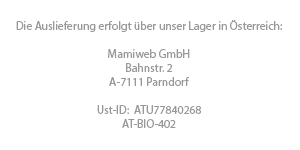
- Effects of Haritaki
- Herpes
Potential effects of Haritaki on herpes
Terminalia Chebula: Herpes
Scientific experiments and studies that evaluate potential effects of Haritaki on herpes.
Studies have found evidence suggesting that Haritaki extract may exhibit antiviral properties against HSV-2 and potentially show higher efficacy in inhibiting virus attachment and entry into host cells compared to acyclovir. Combinations of acyclovir with traditionally used Haritaki showed promising results in supporting antiviral activity against HSV-1 in animal studies, particularly in reducing viral shedding in the brain.
It is further suggested that Haritaki may offer supportive protection against APAP toxicity to the liver and kidneys.
At present, there is no scientifically confirmed health benefit of Haritaki recognized by the EFSA (EU Authority for Science, Safe Food, and Sustainability). The described experiences are based on traditional applications and individual reports. The available scientific studies should therefore be evaluated and interpreted individually.
Anti-HSV-2 activity of Terminalia chebula Retz extract and its constituents, chebulagic and chebulinic acids
Source: BMC Complementary and Alternative Medicine 2017 Feb 14;17(1):110. doi: 10.1186/s12906-017-1620-8.Quote from the study: Cytotoxicity assay using Vero cells revealed CC50 = 409.71 ± 47.70 µg/ml for the extract whereas chebulagic acid and chebulinic acid showed more than 95% cell viability up to 200 µg/ml. The extract from T. chebula (IC50 = 0.01 ± 0.0002 µg/ml), chebulagic (IC50 = 1.41 ± 0.51 µg/ml) and chebulinic acids (IC50 = 0.06 ± 0.002 µg/ml) showed dose dependent potent in vitro direct anti-viral activity against HSV-2. These also effectively prevented the attachment as well as penetration of the HSV-2 to Vero cells. In comparison, acyclovir showed poor direct anti-viral activity and failed to significantly (p > 0.05) prevent the attachment as well as penetration of HSV-2 to Vero cells when tested upto 50 µg/ml. However, in post-infection plaque reduction assay, T. chebula extract, chebulagic and chebulinic acids showed IC50 values of 50.06 ± 6.12, 31.84 ± 2.64, and 8.69 ± 2.09 µg/ml, respectively, which were much lower than acyclovir (71.80 ± 19.95 ng/ml). Conclusions: The results presented herein suggest that T. chebula extract, chebulagic and chebulinic acids have higher direct antiviral activity against HSV-2 and efficacy to inhibit virus attachment and penetration to the host cells as compared to acyclovir. However, acyclovir is more potent to inhibit post-infection virus replication. Hence, T. chebula may be a useful candidate for developing alternative therapy for prevention of sexually transmitted HSV-2 infection.
The effect of oral T. arjuna at the dose of 500 mg/kg body weight was more than the 250 mg/kg body weight. The extract also causes a significant (P<0.05) increase in superoxide dismutase, catalase, glutathione peroxidase, glutathione-s-transferase glutathione reductase and glucose-6-phosphate dehydrogenase, reduced glutathione, vitamin A, vitamin C, vitamin E, total sulfhydryl groups (TSH) and non protein sulfhydryl groups (NPSH) in liver and kidney of alloxan induced diabetic rats, which clearly shows, the antioxidant property of T. arjuna bark. The result indicates that the extract exhibit the antioxidant activity through correction of oxidative stress and validates the traditional use of this plant in diabetic animals."
[Link to the scientific study]Acetaminophen-induced Hepato- and Nephrotoxicity and Amelioration by Silymarin and Terminalia chebula in Rats
Source: Toxicology International 2010 Jul;17(2):64-6. doi: 10.4103/0971-6580.72672.Quote from the study: Experimental study was conducted to evaluate the hepato- and renoprotective effect of silymarin and Terminalia chebula against experimentally-induced acetaminophen (APAP) toxicity in rats. Oral administration of APAP @ 500 mg/kg for 1 to 3 days to all the four groups (six rats in each) resulted in significant elevation of serum triglycerides, total cholesterol, blood urea nitrogen, serum creatinine, and aspartate transaminase activity. Post-treatment with silymarin @ 25 mg/kg and T. chebula 125 mg/kg in groups 2 and 3 and their combination to group 4 from day 4 to 14 has significantly reversed the alterations of above said markers and offered better protection. The results of the study enunciated that silymarin and T. chebula exhibit good hepato- and nephro-protection against APAP toxicity."
[Link to the scientific study]Efficacy of traditional herbal medicines in combination with acyclovir against herpes simplex virus type 1 infection in vitro and in vivo
Source: ScienceDirect, Antiviral Research Volume 27, Issues 1–2, May 1995, Pages 19-37Quote from the study: Traditional herbal medicines have been safely used for the treatment of various human diseases since ancient China. We selected 10 herbal extracts with therapeutic antiherpes simplex virus type 1 (HSV-1) activity. Among these, Geum japonicum Thunb., Rhus javanica L., Syzygium aromaticum (L.) Merr. et Perry, or Terminalia chebula Retzus showed a stronger anti-HSV-1 activity in combination with acyclovir than the other herbal extracts in vitro. When acyclovir and/or a herbal extract were orally administered at doses corresponding to human use, each of the 4 combinations significantly limited the development of skin lesions and/or prolonged the mean survival times of infected mice compared with both acyclovir and the herbal extract alone (P < 0.001 or 0.05). These combinations were not toxic to mice. They reduced virus yields in the brain and skin more strongly than acyclovir alone and exhibited stronger anti-HSV-1 activity in the brain than in the skin, in contrast to acyclovir treatment by itself. Combinations of acyclovir with historically used herbal medicines showed strong combined therapeutic anti-HSV-1 activity in mice, especially reduction of virus yield in the brain."
[Link to the scientific study]



